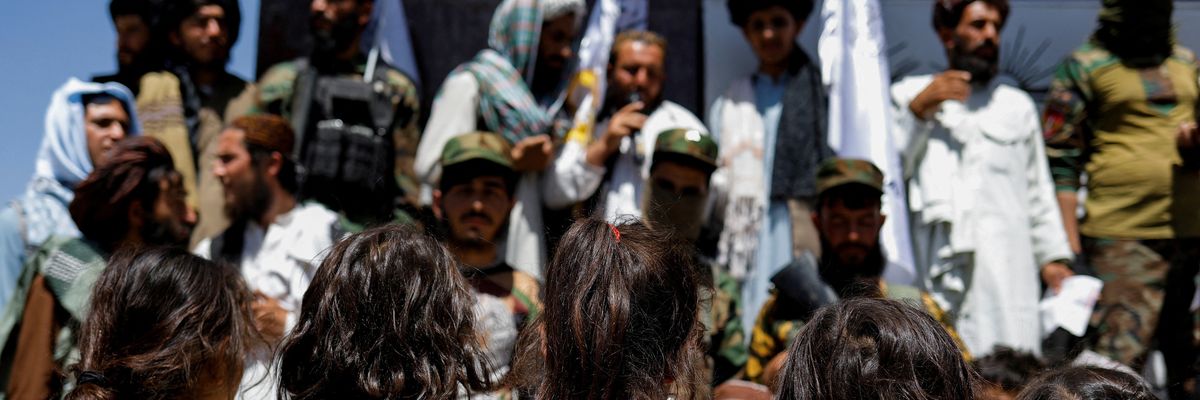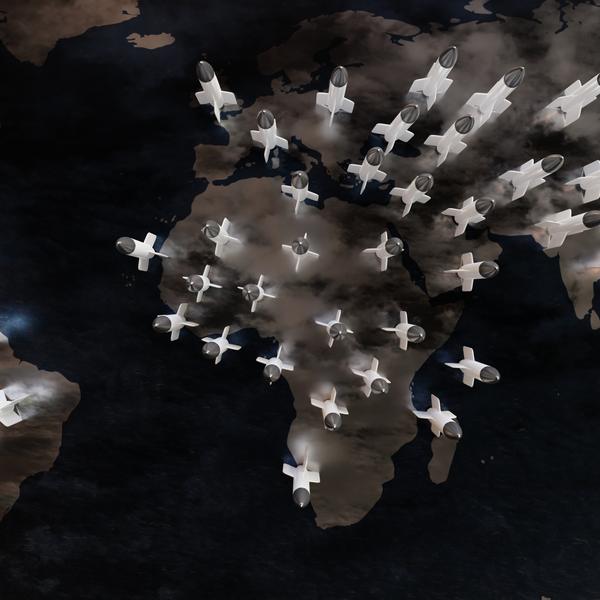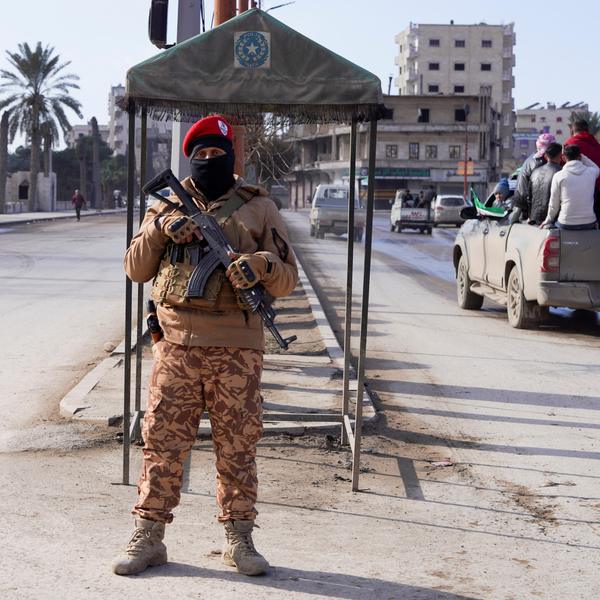Today, Afghanistan is a nightmarish place for many Afghans, marked by a lack of rights and opportunities. It’s crucial to recognize this reality. However, it’s also important to acknowledge that numerous predictions from Washington did not materialize as expected. For all the admonishments of the Biden administration, Afghanistan has not become a gift for China or Russia, or a hotbed of transnational terrorism.
President Biden faced relentless criticism for the withdrawal, decried as squandering “20 years of blood and sacrifice” by Republican Senator Jim Risch and branded “fatally flawed” by Democratic Senator Bob Menendez. Former Secretary of Defense Leon Panetta, who oversaw the end of the U.S. surge in Afghanistan during President Obama's tenure, likened the evacuation to the infamous Bay of Pigs fiasco, even before the tragic loss of 13 U.S. service members and at least 170 Afghans in an ISIS attack.
Meanwhile, former Secretary of State Mike Pompeo, who less than one year earlier had proudly stood for a photo op with the Taliban’s chief negotiator, after agreeing to withdraw U.S. troops, told Fox News that the “Biden administration has just failed in its execution of its own plan.” In April, the Wall Street Journal's Editorial Board partly attributed Russia’s invasion of Ukraine to “U.S. surrender in Afghanistan” and during a Congressional hearing in July, Congressman Michael McCaul labeled the withdrawal “a mistake of epic proportions.” Failure is, indeed, an orphan.
One of the most frequently cited reasons for why the U.S. military had to remain in Afghanistan was rooted in counterterrorism efforts. Indeed, fighting terrorism was the reason for the authorization for the use of military force that allowed U.S. troops to be deployed to Afghanistan in the first place. President Biden drew criticism from certain pundits when he asserted on August 16, 2021, that “Our only vital national interest in Afghanistan remains today what it has always been: preventing a terrorist attack on [sic] American homeland.” He emphasized that the original mission was, in fact, a response to a terrorist attack and had a primary focus on counterterrorism.
Some pundits might find this fact inconvenient, especially those who have come to believe that our presence in Afghanistan was primarily about nation-building, rather than acknowledging that nation-building itself was an ill-conceived strategy within the context of the War on Terror.
In the lead-up to the withdrawal, the notion of over-the-horizon counterterrorism capabilities was often ridiculed as ineffective. During the fall of 2021, the Pentagon assessed that the Islamic State-Khorasan Province (ISKP), an ISIS offshoot in Afghanistan, could potentially launch an attack on the U.S. within as little as 6 months. Yet, nearly two years later, no ISKP attack originating from Afghanistan has targeted U.S. soil.
Furthermore, senior analysts at the National Counterterrorism Center (NCTC) recently evaluated that the group relies on “inexperienced operatives in Europe” to carry out attacks abroad. In other words, the next generation of 9/11 hijackers is not being trained in Afghanistan. The Biden administration showcased its ability to secure significant over-the-horizon victories against terrorists, such as when a U.S. drone killed al-Qaeda chief Ayman al-Zawahiri in a Kabul apartment on July 31, 2022.
As of last March, Nicholas Rasmussen, the Department of Homeland Security’s counterterrorism coordinator, viewed the likelihood of a 9/11-style attack as “almost inconceivable.”
The world of today is different than on the morning of September 11, 2001. Back then, Afghans had extremely limited communication with the outside world. In contrast, today, over 60 percent of adults own a cell phone, with more than 80 percent having access to one. This trend holds true for other once-isolated parts of the world as well. This connectivity will pose challenges to the Taliban’s ability to enforce their draconian restrictions over the long-run. It has also changed the way terrorists operate. In the realm of terrorism, the world is indeed flat. Extremist ideologies can be disseminated, and terrorists can recruit overseas operatives to inflict harm.
But this may not be such a big win for terrorist groups like ISKP. While their capacity for recruitment is more substantial than in the past, their ability to train and direct quality recruits without interference is actually diminished. Meanwhile, the capacity of potential target nations to intercept such plots is stronger than ever before. Instead of participating in a global campaign of terrorist whack-a-mole, it is our domestic defenses that are best positioned to protect the homeland.
This isn’t meant to downplay the potential of ungoverned spaces to serve as breeding grounds for adept and motivated terrorists. However, concerning the case of Afghanistan, NCTC analysts concluded that the Taliban’s activities have “prevented the branch [ISKP] from seizing territory that it could use to draw in and train foreign recruits for more sophisticated attacks.”
While it’s true that terrorism can be managed and nation-building wasn’t the purpose of going to war, it was still shocking for many Americans to witness the swift collapse of a government that so many U.S. lives, tax dollars, and lives of our Afghan partners had contributed to building.
One reason for the astonishment shared by lawmakers, media, and the American public over the evacuation debacle, the vanishing of Afghan security forces, and the hasty departure of the Ghani administration, stems from a steady flow of falsehoods regarding the war. Rather than a deliberate effort of intentional deceit, it was more of a collective exercise in self-deception, omission, and hopeful exaggeration.
As the U.S. war in Afghanistan trudged onward, a carefully curated liturgy of talking points was repeated in Washington. Our leaders were well aware that Afghanistan was an archipelago of cut-off cities and forward operating bases, while the Taliban dominated the countryside, roads, and the night. It was no secret that Ashraf Ghani was surrounded by a circle of sycophantic advisors. The economy was sustained by a continuous flow of aid and war-related industries. Yet, speaking candidly about this was rare until after the Afghan government collapsed.
A cognitive dissonance made it acceptable for U.S. lawmakers, foreign elites, military-aged men who had fled their conflict-ridden countries, and even human rights organizations to not only call for the perpetual deployment of American soldiers but to claim we owed such a commitment. Of course, the U.S. military was more than enthusiastic to oblige. And for soldiers, there is an unrelenting desire and pressure to deploy. I too volunteered to deploy. However, the enthusiasm of young warfighters shouldn’t grant a blank check for putting them in harm’s way.
Since the U.S. withdrawal, unsettling truths emerged. Although tens of thousands of Afghan soldiers made the ultimate sacrifice, when push came to shove — even before the Americans’ departure — Afghan forces fell to the Taliban. Their supplies ran out and corrupt leaders in Kabul left them to die or surrender. The strongman warlords, elevated by Washington and summoned by Ashraf Ghani to save the republic, fled to neighboring countries.
Over the years, the Taliban were dismissed as a proxy of Pakistan, disconnected from Afghan society, yet, it was the Afghan government, created through an international conference in Bonn, Germany, and supported with billions of U.S. aid, that failed to inspire Afghans to fight for its survival at a crucial moment. Many observers, myself included, were confident that Afghans would fiercely resist the Taliban and the country would rapidly descend into civil war. The country has instead fallen into a haunting silence.
One prediction that has come true is the dire situation for women under the Taliban’s rule that can only be described as gender apartheid. They have progressively restricted girls’and women’s right to education, closed gathering places and livelihoods like beauty parlors, and even banned women from a national park. Their actions seem more driven by an obsession with control of every aspect of women’s lives than religious doctrine.
Additionally, the Taliban have stifled dissent and used torture against rivals. We must confront these harsh realities and take meaningful actions, but we must also avoid making promises we cannot fulfill, both for the sake of Afghans and our own credibility.
Today, Afghanistan is not at war for the first time in twenty years, with violent deaths decreasing from well over 20,000 per year in the years leading up to the U.S. withdrawal to under 2,000 last year. The country hasn’t turned into a narco-state. The Taliban also haven’t abandoned their extremist beliefs, disavowed al-Qaeda, or restrained the Pakistani Taliban.
However, their current focus seems to be inward on Afghanistan. The Afghan economy is struggling, partly due to Taliban mismanagement, though it doesn’t appear to be much worse than the previous government at management, and their corruption seems to be less. Their cruelty, however, seems unfailing.
It’s worth reflecting on why so many of our predictions were inaccurate. The U.S. facilitated Afghanistan’s development, but it also prolonged the war. Now, Taliban rule and the isolation it creates has plunged Afghans into deeper poverty and created a nightmare for women, a bargain from hell, created by Washington and its partners in Kabul, but that ultimately can only be resolved by Afghans themselves.
















